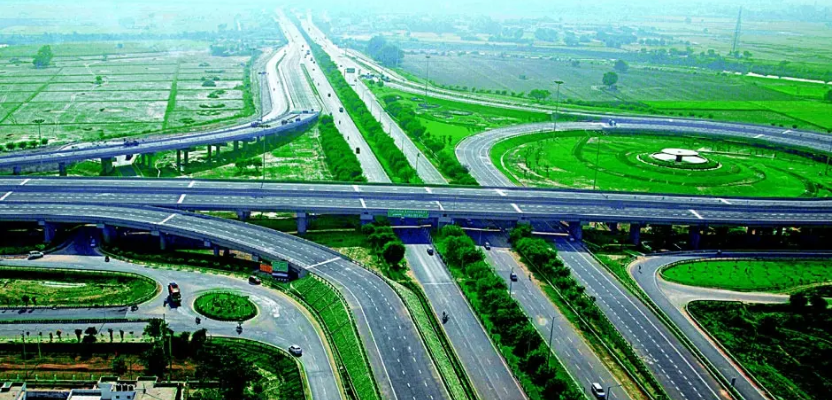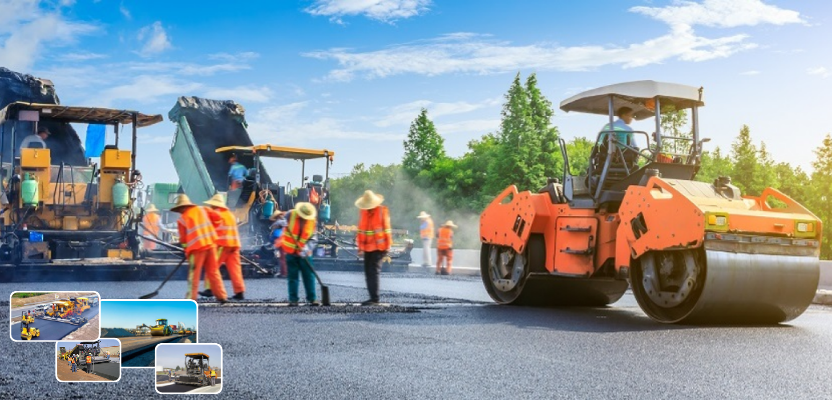The National Highways Authority of India (NHAI) plays a crucial role in developing and maintaining the country’s highway infrastructure. With increasing demands for urbanization, economic growth, and transportation efficiency, NHAI has adopted modern solutions and innovations in project execution. This blog explores recent technological advancements and innovative practices transforming highway infrastructure in India, enhancing safety, efficiency, and sustainability.
1. Advanced Materials and Sustainable Practices
Recent trends in highway construction emphasize using advanced materials that promote sustainability. NHAI incorporates recycled materials, such as plastic and reclaimed asphalt pavement (RAP), into road construction. This approach manages waste, enhances road durability, and reduces greenhouse gas emissions.
Additionally, developing green concrete—utilizing industrial by-products like fly ash—reduces carbon footprints while improving the material's resistance to weathering. These innovations align with global sustainability goals and demonstrate NHAI's commitment to environmentally responsible development.
2. Smart Transportation Systems
The integration of smart transportation systems (ITS) is transforming highway operations. NHAI is implementing intelligent traffic management systems that use real-time data to monitor and manage traffic flow. Sensors and cameras collect data on vehicle speeds and road conditions, optimizing traffic signals and providing real-time information to drivers.
Vehicle-to-infrastructure (V2I) communication technology also enhances safety by allowing vehicles to receive alerts about road conditions and traffic. This increased situational awareness helps reduce accidents and improve overall traffic flow.
3. Drone Technology in Surveying and Monitoring
Drones are revolutionizing surveying, monitoring, and inspection in highway construction. Equipped with high-resolution cameras and LiDAR sensors, drones conduct aerial surveys quickly and accurately, significantly reducing the time and labor involved in traditional methods. This data supports informed decision-making during project planning.
During construction, drones can monitor progress and inspect hard-to-reach areas, enhancing safety and ensuring projects stay on schedule. Their ability to provide real-time updates allows for timely interventions if issues arise.
4. Building Information Modeling (BIM)
Building Information Modeling (BIM) is transforming project planning, design, and execution. This digital representation of infrastructure enables efficient collaboration among stakeholders, improving communication and reducing errors. By facilitating a single model accessible to all parties, BIM enhances project management and promotes streamlined execution.
BIM also supports lifecycle management, allowing NHAI to track materials, costs, and schedules throughout the project, ensuring timely delivery and sustainability.
5. Artificial Intelligence and Machine Learning
Artificial intelligence (AI) and machine learning (ML) are enhancing various aspects of highway project execution. NHAI uses predictive analytics to anticipate maintenance needs and optimize resource allocation by analyzing historical data and traffic patterns. This proactive approach reduces costs and extends the lifespan of infrastructure.
Furthermore, AI automates construction processes, optimizing schedules and resource allocation to enhance productivity while minimizing human error.
6. Smart Maintenance Solutions
NHAI is adopting smart maintenance solutions that leverage technology to improve highway upkeep. Condition monitoring systems use sensors embedded in road surfaces to assess their condition in real time, allowing for timely repairs and reducing accident risks. By implementing these systems, NHAI ensures highways remain safe and functional.
Additionally, big data analytics enables informed decision-making in maintenance practices, prioritizing efforts based on real-time data and infrastructure performance.
Conclusion
Innovations in highway infrastructure set new standards for efficiency, safety, and sustainability in NHAI project execution. By embracing advanced materials, smart transportation systems, drone technology, Building Information Modeling, artificial intelligence, and smart maintenance solutions, NHAI enhances project quality and the overall experience for road users.
As India continues to grow, the demand for reliable and efficient highway infrastructure will rise. NHAI's commitment to innovation and sustainability will play a pivotal role in shaping the country's transportation landscape for generations to come.




